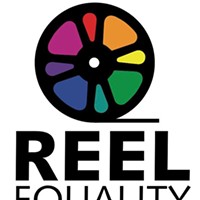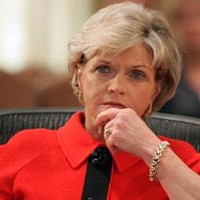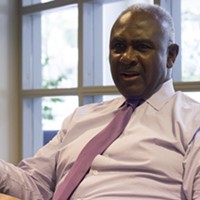When Anthony Foxx became mayor of Charlotte in 2009, he inherited a city with a declining economy and a rising homeless population, but with its lowest crime rate since 1994. In the two years since his election, some things have gotten better. The crime rate not only remains low, but it is now the lowest it's been in 30 years. Other things, such as unemployment, are still problems. Among Foxx's greatest accomplishments is, of course, his securing of the 2012 Democratic National Convention. Running for another term as mayor, Foxx spoke with Creative Loafing about what he's done for Charlotte and what he plans to do if elected to a second term.
Creative Loafing: What are your biggest accomplishments as mayor so far?
Anthony Foxx: When I ran back in 2009, I said I was going to focus on three things: strengthening and diversifying the economy, improving quality of life and strengthening ties to Washington and Raleigh. When I look back, I can see the results in each of those categories. Despite strong economic headwinds, we have scratched and clawed our way to more than 14,000 new jobs — a net positive job growth over the last two years — and more than 700 new companies opening their doors here. That's not to say that we've made up for what was lost in the past four to five years; but it is to say that Charlotte is holding its own and we're working hard every day to get everyone who wants to work an opportunity to do so.
With quality of life, I reflect on some of the tough decisions we made to put police officers on the street and the fact that today we have a crime rate that's at a 30-year low. That's a very clear result of a lot of political courage to do what's required to get our community to an improved point on public safety. It hasn't just been the boots on the ground; it's been putting facilities out in the community. We've opened police stations off Beatties Ford Road, we have one on Providence, there will be one coming online in the Steele Creek area. We're trying to put our police officers where the community is and that's having an impact.
With Washington and Raleigh, we've had a great run of success. I-485 is in process and will be completed before it was supposed to get started, [Editor's note: The project was scheduled to start in summer 2011 but began in the spring; the expected date of completion is December 2014.] The southern leg will be widened before that project was supposed to get done. We've succeeded in lobbying for, receiving and retaining high-speed rail investments. We're working feverishly to get the [Charlotte Area Transit LYNX] blue line extension built and so far that's tracking very well. And of course, we're working on some public private partnership strategies for the red line and we will see the Streetcar Starter Project happen in the next few years. Transit is working well but it's working because of the partnerships we have with the General Assembly, with our governor and our leaders in Washington. I can't think of a more explicit example of our stature as a city, on a national and an international stage, than to have the [DNC] coming in 2012.
If you're re-elected, what are three things that you'd like to accomplish in your second term?
I want to keep moving in the direction we're moving on all the fronts I've talked about. We've got to continue strengthening and diversifying the economy. We've made some real progress in making Charlotte an embracing place for small business. I still believe there is more to do and that's a point that I would like to focus on over the next couple of years. I think we've got to do a much better job of focusing on children in this community. I have worked to expand the youth employment plan to its highest level ever, in terms of kids going through the summer program. I'd like to do multiples of that in future years. I think our capacity to give young people a positive experience enforces what they are learning in school and increases work skills and life skills, which can only help them improve academically. ... That's why I'm working hard to expand mentoring programs that we have and why City Council, for the first time, has adopted a model for afterschool funding that will focus more on results and competition than in recycling programs. All of those things are part of building a support system for children that extends beyond the classroom. Finally, I think we're going to have to confront how our governance as a community prepares us for the century we're walking into. I've been a proponent for city/county consolidation and I think we should take some time to look at that issue. I've also been a proponent of regional transportation decision-making and creating prioritization across our entire region. Those are two examples of how I think we need to be somewhat inwardly focused on our community so that we can position not only Charlotte but also the entire region for success long term.
What are some ways you plan to address homelessness?
That's another quality of life issue that we've seen a lot of progress with over the last two years. We went about two to three years with a 10-year plan to end homelessness, and no action was taken on that plan. In the last two years, one of the first things we did was create a Charlotte-Mecklenburg coalition on housing, which is the first-of-its-kind collaboration between the city of Charlotte, Mecklenburg County, our private sector, our philanthropic community and our faith community. All of those voices are at the same table for the first time. The idea is that when the city is thinking of using housing-trust-fund dollars to invest in a particular project, we've got the human-services dimension there, the private sector and the faith community there. To have all of those voices at one table will help create the synergy that will accelerate our ability to address the issue. The second thing we've done is increased the allotment in the housing-trust fund. We were slated to spend $10 million in the 2010 bond package. Through my leadership and others on the Council, we were able to get that lifted by $5 million. And finally, the City Council is just beginning to wrestle with the issue of housing location policy. The reality is where you live determines a whole lot of things; the quality of life for kids after school or the school itself or what kind of amenities are present. I've had some very good dialogue with elected officials on other bodies about the city really taking a closer look at that issue. Those are three things that I promised to do while I was running and we're doing them.
What is the biggest difference between you and Republican candidate for mayor Scott Stone?
One basic difference is I've been in the job for two years. I've kept my ear to the ground and I've taken great care to listen to the unvarnished views of the people who live here. The glass is half-full and it's not half-empty. Many of the things we've already talked about are going to have a positive impact on this community for the long term. Leadership right now isn't measured in what one thinks might happen, but in what actually happens, what kind of foundation one sets for the next 20 years. I've not had a lot of contact with my opponent at this time.
The general election is Nov. 8. Primary elections take place on Sept. 13.
Latest in DNC News
More by Cheris Hodges
-

Statewide film series set to fight N.C. anti-gay amendment
Dec 15, 2011 -

N.C. governor vetoes repeal of Racial Justice Act
Dec 14, 2011 -
More Democratic in-fighting
Dec 13, 2011 - More »
Calendar
-

Queen Charlotte Fair @ Route 29 Pavilion
-

NEW WINDOW GALLERY-Pat Rhea-ACRYLIC PAINTINGS-April 05-30 2024 VALDESE, NC 28690 @ New Window Gallery/Play It Again Records
- Through April 30, 12 p.m.
-

TheDiscountCodes
-

Wine & Paint @ Blackfinn Ameripub- Ballantyne
-

Face to Face Foundation Gala @ The Revelry North End










